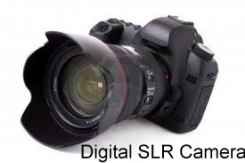|
CLINICAL/MEDICAL PHOTOGRAPHY:
 In the UK the National Health Service classifies Clinical
Photography or Medical Photographers, as Medical Illustrators and are a
part of the healthcare team. Medical Photographers record the work of
healthcare professionals producing objective and accurate images that
record the progress of treatment or pre and post surgery results.
Medical Photography also produces detailed images of patients' injuries
and diseases for use in treatment and education. Clinical
Photographer's can be employed in various locations from clinics,
operating theatres, post-mortems or occasionally out doors. In the UK the National Health Service classifies Clinical
Photography or Medical Photographers, as Medical Illustrators and are a
part of the healthcare team. Medical Photographers record the work of
healthcare professionals producing objective and accurate images that
record the progress of treatment or pre and post surgery results.
Medical Photography also produces detailed images of patients' injuries
and diseases for use in treatment and education. Clinical
Photographer's can be employed in various locations from clinics,
operating theatres, post-mortems or occasionally out doors.
The
work can be technically and emotionally demanding when tasked to
record difficult images, medico-legal evidence or disturbing injuries.
Usually digital cameras are used as opposed to the traditional 35mm
film. There is usually no need for additional lighting however the
flash used must be adequate and fit for purpose. Clinical Photography
can employ a variety of specialist techniques to obtain the various
pictures; these can include macro and microphotography, thermal
imaging, endoscopy and time-lapse shooting. Medical Photographers may
be required to specialise in a subspecialty such as Ophthalmic,
Surgical or Pathological photography.
 Clinical
Photographers must pay attention close to detail, have a meticulous
approach to image and data recording and knowledge of the laws relating
to confidentiality and copyright. Whatever the status of the clinician,
the taking of clinical photographs must be practised within the context
of a professional etiquette. Best practice recognises the need for
informed consent and the constraints associated with confidentiality. Clinical
Photographers must pay attention close to detail, have a meticulous
approach to image and data recording and knowledge of the laws relating
to confidentiality and copyright. Whatever the status of the clinician,
the taking of clinical photographs must be practised within the context
of a professional etiquette. Best practice recognises the need for
informed consent and the constraints associated with confidentiality.
|
|

